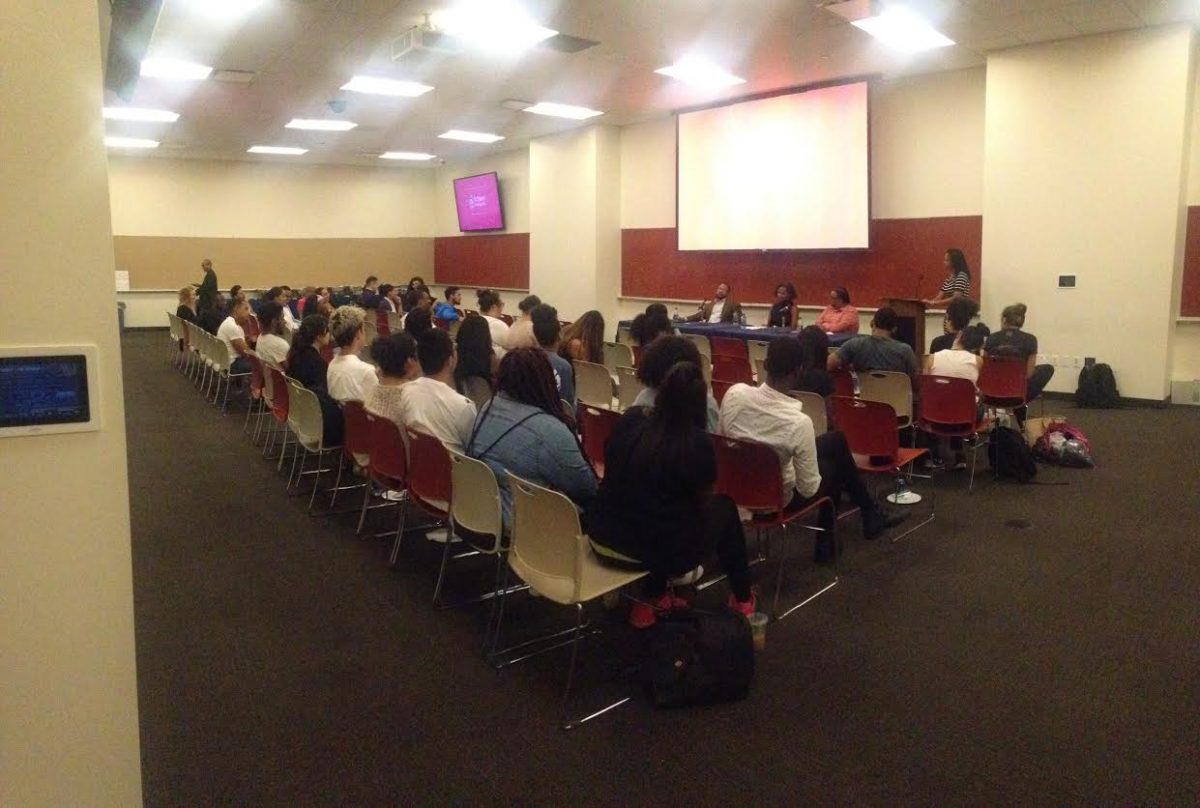About 50 students, administrators and faculty gathered in the D’Angelo Center Org Lounge for the Afro-Latino Panel on Wednesday, Sept. 27. The panel was presented as part of the Latino Heritage Month. The event was sponsored by Haraya, the Latin American Student Organization, Africana Studies English Department and the Caribbean Student Association.
Amenkha Sembenu, a junior psychology major and the president of the Caribbean Student Association, kicked off the event by having a moment of silence for all of the islands affected by the recent hurricanes.
“I actually created the idea for the panel and had the first one last semester. I felt that people of our generation were really uneducated when it came to race, specifically when it came to the history of being mixed with many ethnicities, the history of Central America and the Caribbean,” Sembenu said.
“Being Afro Latino myself, I faced many adversities in both communities so when I became secretary for CSA last semester, I definitely wanted to shed light on that subject and bring awareness,” she added. “I was chosen again to host it this year and I really want to help educate others on the Afro Latino culture and get the incoming class to be knowledgeable and woke.”
Panelists included Doctoral Student of African and African Diaspora Studies at the University of Texas Austin Paul Joseph Lòpez Oro, Rutgers University Professor Dr. Zaire Dinzey Flores and Director at Proyecto Afrolatin@ /The Afrolatin@ Project Amilcar Priestley who shared their experiences of being Afro-Latino and the research they have done.
“The conversation around Afro-Latino isn’t new,” Priestly said. “We’re living in a fact-challenged reality. Social media has allowed the Afro-Latino conversation to be spread around to new people. We need to share the knowledge.”
Priestly is the Director at The Afrolatin@ Project, a program that assists in the socio-economic development and political participation of Afrolatin@s in Latin America and the Caribbean.
“Latinos don’t fit the racial category in the United States,” Oro said. “Afro-Latina is a disruption to the narrative of racial mixture. Why doesn’t black become the all comforted category? Why is our blackness hyphenated?”
Before Oro ended his discussion, he showed a video clip about Garifuna, people who are descendants of the West African, Central African, Island Carib and Arawak people. The clip included a young woman who talked about her experience of being Garifuna, and having to check off the “other” box when picking her race on a document.
Food was provided for everyone who attended and students had the opportunity to ask the panelists questions and speak with them once the event was over.
Three students shared what their heritage means to them.
“My heritage is my identity…It dictates who I am and what I do,” Toby Chukwura, a junior, who is Nigerian, said. “I wouldn’t be anything without it. It’s the legacy I was given to continue.”
“As humans, we often try to identify with something especially coming from Latin American countries,” junior Sieta Leon said. “I am Dominican, and that is something I carry with me every day. I’m raised with such of my heritage being present, I can’t be me without it.”
“It’s who I’ve learned to be,” junior Jonathan Guerrero, who is Latino, said. “Everywhere I go, I can show my roots and expand everyone else’s knowledge of what I am and who my family is.”








